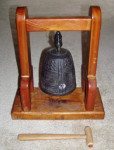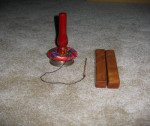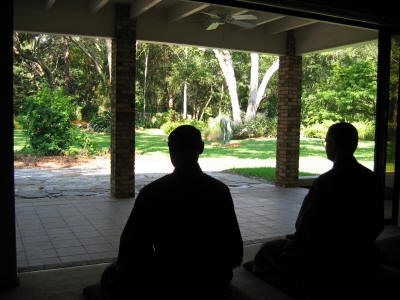I grew weary decades ago of the tiresome claims of new age non-scientist novelists that ancient spiritual masters knew all about the implications of quantum mechanics long before 20th Century physicists. Sure, the ancients may have said that all life is somehow interconnected and that the independent self is an illusion, but that is a… Continue reading Zen and the Quantum
Author: ron
Founder of The Zen Practice Foundation. University of Tennessee, B.S., Industrial Engineering (1969). University of Florida, J.D. Law, (1973). Registered patent attorney.
Zen, Dokusan and Mu!
Dokusan, or private instruction, provides an opportunity for Zen students to work directly with a teacher in a confidential, face-to-face setting. In the early days of Buddhism in Asia, interactions between Buddhist masters and their students usually occurred in public gatherings of the monastic community, or on spontaneous interchanges during work and other temple activities.… Continue reading Zen, Dokusan and Mu!
The Magic Of A Zen Sesshin
Sesshin is the Japanese word that we use in the world of Zen for a meditation retreat. A sesshin may last one day, a weekend, three or four days, a week, a month, thirty days, ninety days, or more. Most are seven days. A sesshin day typically begins before sunrise and ends after sunset. Starting at 5:00 a.m.… Continue reading The Magic Of A Zen Sesshin
Zen And Eating Meat
Becoming a vegetarian is the single most effective thing that a single individual can do to inhibit global warming. It dwarfs the impact of switching light bulbs from incandescent to fluorescent or LEDs, driving more fuel efficient or electric cars, using Energy Star appliances, putting solar panels on our roofs, and so on. Some researchers… Continue reading Zen And Eating Meat
Zen, The Stones and Scientology
We Zen practitioners have no bigotry or bias and we practice non-opposition so as a Zen practitioner I have no beef against Scientology. Actually, only Zen practitioners who have awakened lack all bigotry and bias. I am not an enlightened master and Scientology rubs me the wrong way. L. Ron Hubbard liked the name Clearwater so he directed… Continue reading Zen, The Stones and Scientology
Zen. the Self, and External Objects
People who have never given the teachings of the Buddha a second thought know all about subject and object. They know that cars, trees, bodies of water, the sun and all of that other stuff, including other people, is out there and the subject is the me who lives inside and perceives all that stuff. Jerry… Continue reading Zen. the Self, and External Objects
Why does Zen admire rocks?
Ever wonder why rocks are so highly esteemed in Zen? They are esteemed because they exist in the realm of formlessness (the third world referred to in Buddhist sutras and chants that mention the three worlds). The realm of formlessness is the last realm before Nirvana. Stones have transcended sense desire (the first world) and the desire to live in the… Continue reading Why does Zen admire rocks?
Zen And Thrill Seeking
All of us have seen the interview conducted by admiring journalists after someone has run up to a cliff and jumped off it into the abyss with nothing but a hang glider to hold onto. Or after jumping off that nine hundred feet high bridge in West Virginia on Bridge Day with a bungee cord tied to an ankle. And they say the same thing.… Continue reading Zen And Thrill Seeking
Disney and Zen Practice
Walt Disney called Disneyland in California “The Happiest Place on Earth.” Walt Disney World in Orlando uses the same slogan. But having visited WDW scores of times, I can’t help but notice the crying children, the crowds spending their time in long lines to buy food (typically, huge turkey legs, burgers and other food cruel to both the… Continue reading Disney and Zen Practice
Zen, Christianity and No Self
The Buddhist doctrine of no self is often misunderstood even by some Buddhists. People with low self esteem are known to embrace it: See, it’s a good thing to have no self! But the doctrine does not mean that the self does not exist. It means that the self that does exist is a… Continue reading Zen, Christianity and No Self









